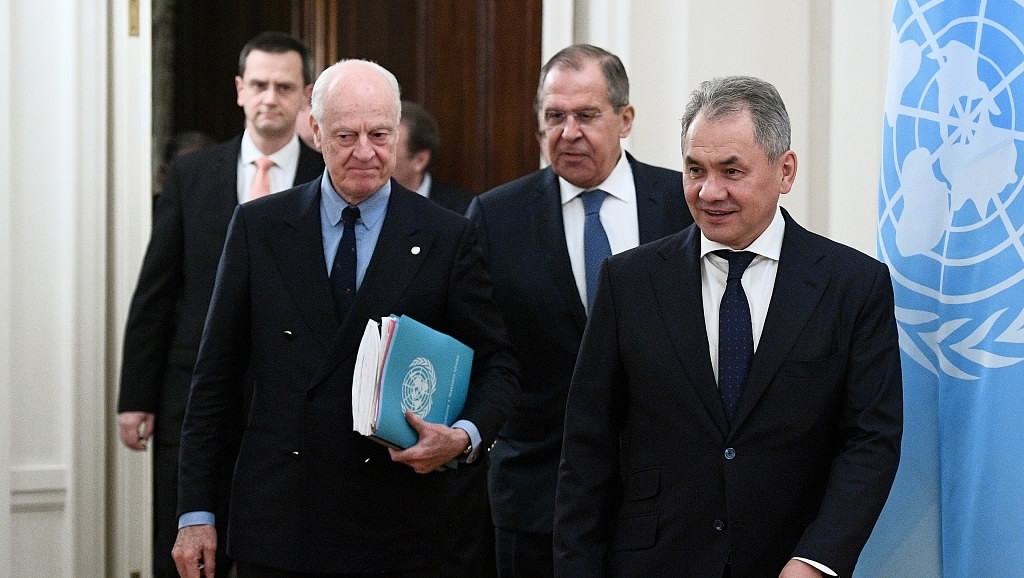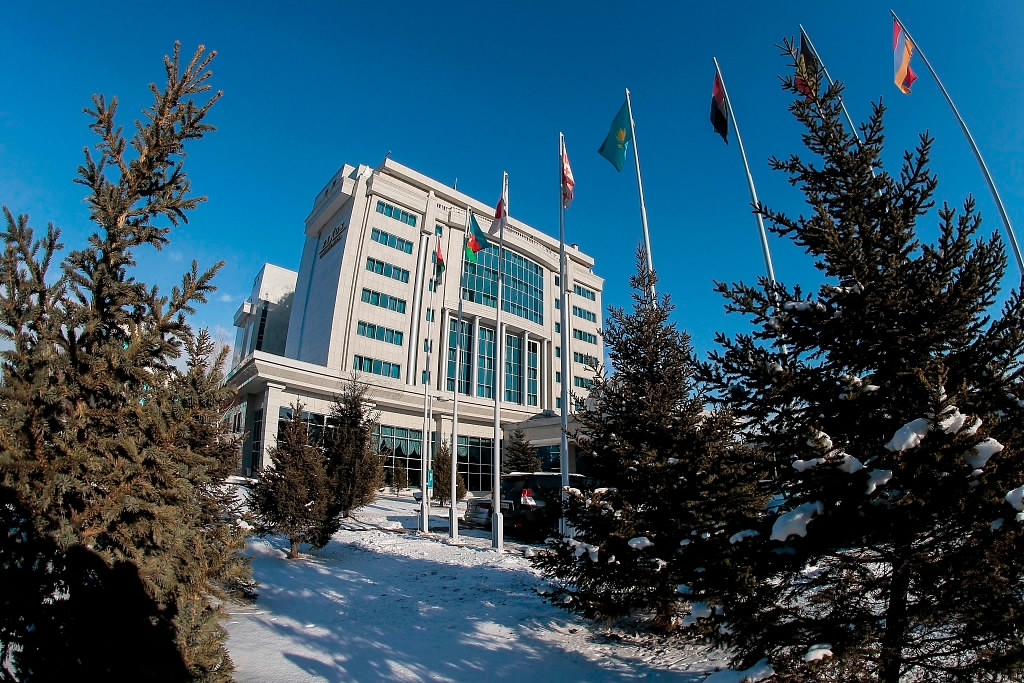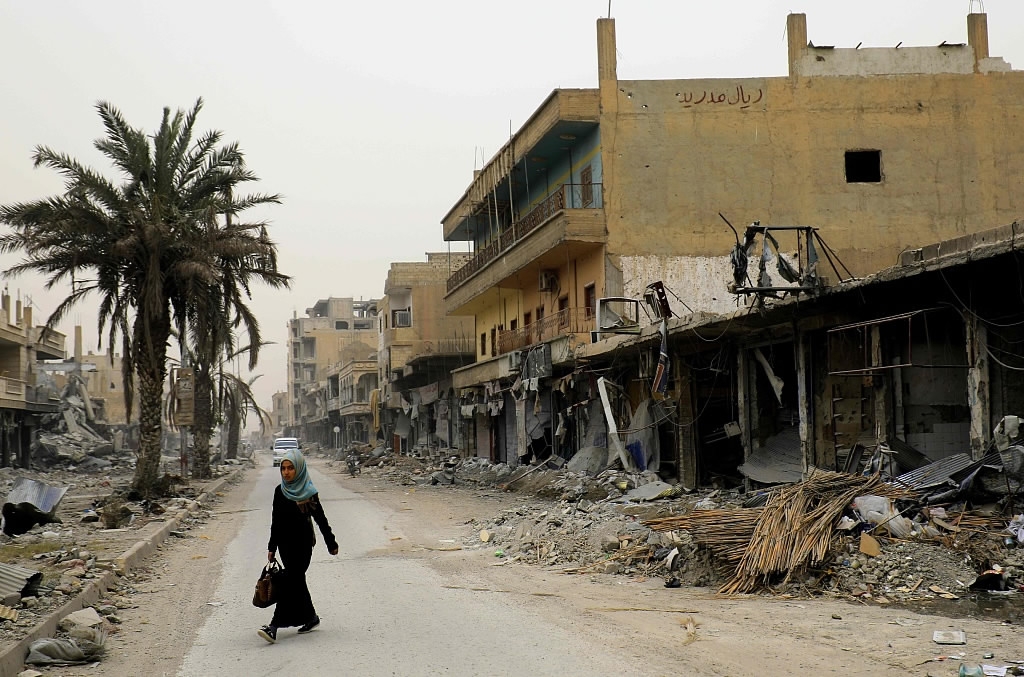
World
12:46, 22-Dec-2017
Syria 'congress' plan tops agenda at Astana peace talks
By Sim Sim Wissgott

Plans for a “National Dialogue Congress” to accelerate progress towards a political settlement in Syria were on the agenda of peace talks in Astana, Kazakhstan on Friday, which the UN Special Envoy on Syria Staffan de Mistura was due to attend.
At a meeting with de Mistura in Moscow on Thursday, Russian Foreign Minister Sergei Lavrov said the talks would focus on which groups and individuals would be invited to the congress, due to be held in the Russian Black Sea resort of Sochi.
De Mistura also announced he would travel to the Kazakh capital Friday to take part in the negotiations brokered by Russia, Iran, and Turkey.
Speaking after the first day of talks in Astana Thursday, Chief Russian negotiator Aleksandr Lavrentyev said "quite a lot of time" had been spent discussing the congress proposal.

A general view taken on December 21, 2017 shows Astana's Rixos President Hotel, the venue for Syria peace talks. /VCG Photo
A general view taken on December 21, 2017 shows Astana's Rixos President Hotel, the venue for Syria peace talks. /VCG Photo
The congress would be "a platform that offers the different representatives of Syrian society the opportunity to solve matters of political settlement that so far have not been (at talks) in Geneva," he said, in reference to parallel UN-sponsored talks in the Swiss city.
The participants in Astana – including a 20-member Syrian opposition delegation and representatives of the Syrian government, Russia, Iran and Turkey – had agreed to draw up a list of attendees for Sochi in the next two or three weeks, he added.
Kremlin spokesman Dmitry Peskov however said there were currently "no dates" for the proposed congress.
De Mistura said Thursday that peace talks should proceed "one step at a time" and refused to comment further on the congress proposal.
He acknowledged however that the round of UN negotiations in Geneva earlier this month "was not a good meeting," and said he planned a new round in the last two weeks of January.
"We very much hope that the UN delegation will participate in the Congress because we see no other holding of this event, except under the auspices of the UN," Lavrentyev also said.

A Syrian girl crosses a destroyed street in Raqa on December 20, 2017, two months after YPG-led Syrian Democratic Forces captured the city from the Islamic State (IS) group. /VCG Photo
A Syrian girl crosses a destroyed street in Raqa on December 20, 2017, two months after YPG-led Syrian Democratic Forces captured the city from the Islamic State (IS) group. /VCG Photo
Since the start of Syria's war in 2011, several diplomatic attempts to halt the conflict have stumbled, mainly over President Bashar al-Assad’s future.
A fragile ceasefire brokered at the end of last year by Moscow and Ankara has been bolstered somewhat by the negotiations in Astana, where the most recent rounds of talks have focused on implementing four "de-escalation zones" to stem fighting between government and rebels.
In Syria, forces loyal to President Bashar al-Assad have made big gains on the ground since Russia joined the war in late 2015, but the fighting shows no sign of ending conclusively.
The war has left more than 340,000 people dead, according to the Syrian Observatory for Human Rights.
3657km
Source(s): AFP
,Reuters

SITEMAP
Copyright © 2018 CGTN. Beijing ICP prepared NO.16065310-3
Copyright © 2018 CGTN. Beijing ICP prepared NO.16065310-3